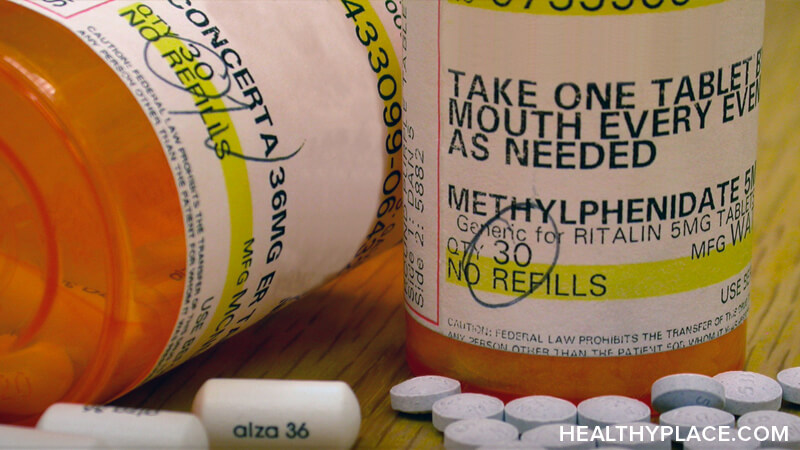Adult ADHD Support: Where to Find It, Why You Need It

Adult ADHD support is crucial for living well with ADHD. This disorder can be overwhelming. It can be infuriating when, try as you might to be organized, things get lost or misplaced, or important deadlines and dates get missed. Trying to figure out social skills to navigate the world of people can bring heartache. To add insult to injury, it frequently feels like you’re the only one who “doesn’t have it together” and you feel like a failure. It’s not you. It’s the ADHD. And it’s why ADHD support is crucial.
Benefits of Adult ADHD Support
Support comes in many forms and has multiple purposes. Some of the benefits for seeking support for adult ADHD include:
- Help with staying on task
- Assistance with eliminating clutter and getting organized
- Increased accountability and reliability
- Higher levels of motivation
- Receiving positive help rather than criticism (How to Talk to Your Parents about ADHD)
- Exchanging ideas, strategies, and tips
- Development of ADHD self-help strategies
- Networking to connect with others who are dealing with ADHD, too
- Decreased feelings of loneliness and being misunderstood
- Giving and receiving understanding and empathy
- Gaining hope, a sense that there is a light at the end of this ADHD tunnel that can be long and dark
If you live with ADHD, finding or creating support will help you work with your symptoms rather than against them. When you have help accomplishing things, such as organization, that ADHD makes difficult, you will no longer be held back by those symptoms. You can then concentrate your energy on all of the wonderful people and things in your life.
Types of ADHD Support
Support comes in different forms. What is supportive for one person might be irritating for the next. As you search for support, keep and enhance what works for you, and discard what doesn’t. It more than okay to embrace your uniqueness when you’re finding support. Let’s explore three effective sources of ADHD support.
- Friends and family. Some people find the majority of their support among close friends and family. People close to you know you better than anyone else does, and they are often (not always) good at providing you feedback lovingly rather than offensively.
If you have an open, positive relationship with people in your life, consider enlisting their support on a regular basis. They could provide feedback on how you’re acting in social situations, and they could even role play with you to help you practice new skills.
No matter what support someone close to you provides, make sure to agree up front that the feedback is both given and received positively. This is about support rather than criticism, and done right it can deepen the connection you have with each other.
- ADHD coaches. ADHD coaches are professionals who help people living with ADHD improve challenges inherent in this disorder: inattention, hyperactivity, and impulsivity. An ADHD coach helps people with things like planning, organization, time management, and problem-solving. Coaches and clients work together to determine goals, and the coach provides information and support as well as make sure the client is accountable and taking action toward goals.
ADHD coaching can be done in person or online. The National Resource Center on ADHD (CHADD, or Children with Adults with ADHD) has information on ADHD coaching, and the ADHD Coaches Organization has a helpful coach finder on their website.
Because they know how to target the ADHD symptoms that are interfering in someone’s life, and because they understand how people with ADHD operate, coaches can provide the support you need in the way you need it.
- Adult ADHD Support groups. Sometimes, you don’t want help building skills. Sometimes, you don’t want someone to help you set goals and create strategies for achieving them. Sometimes, you just need someone to listen. ADHD support groups provide support for adult ADHD and they also provide support directly for the person.
In support groups, people come together around a common theme, in this case living with ADHD. Gathering with others who share similar experiences helps you feel less alone. Exchanging tips and frustrations can be a great way to vent to people who are going through very similar things. Adult ADHD support groups are also great places to learn tips and strategies from people who use them.
To find adult ADHD support groups in your area, check with your doctor or therapist, as these professionals often have resource lists. Also, check with your county mental health association or agency. If you have mental health organizations in your community, such as the National Alliance on Mental Illness (NAMI), calling their offices can help you connect with support groups. Look at community centers, too, as they often host support groups and keep a directory or list of what groups meet at their facilities.
Taking time to find the type of adult ADHD support that is right for you can yield satisfying results. Having support helps you manage ADHD symptoms, and it helps your sense of belonging.
APA Reference
Peterson, T.
(2021, December 20). Adult ADHD Support: Where to Find It, Why You Need It, HealthyPlace. Retrieved
on 2025, October 27 from https://www.healthyplace.com/self-help/adhd/adult-adhd-support-where-to-find-it-why-you-need-it







